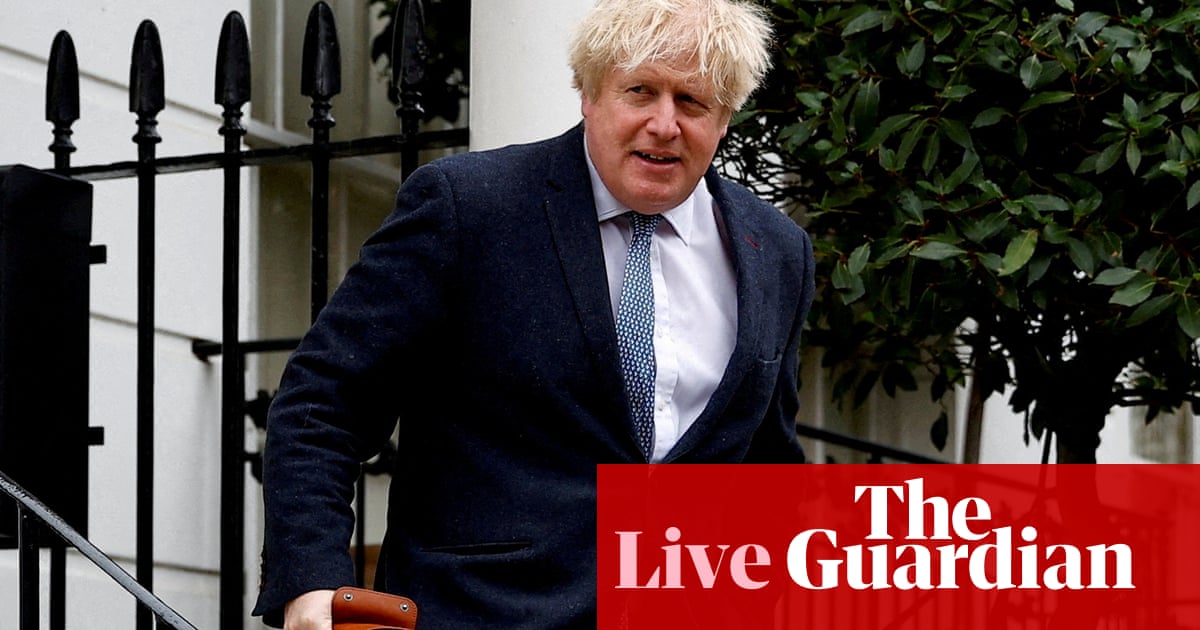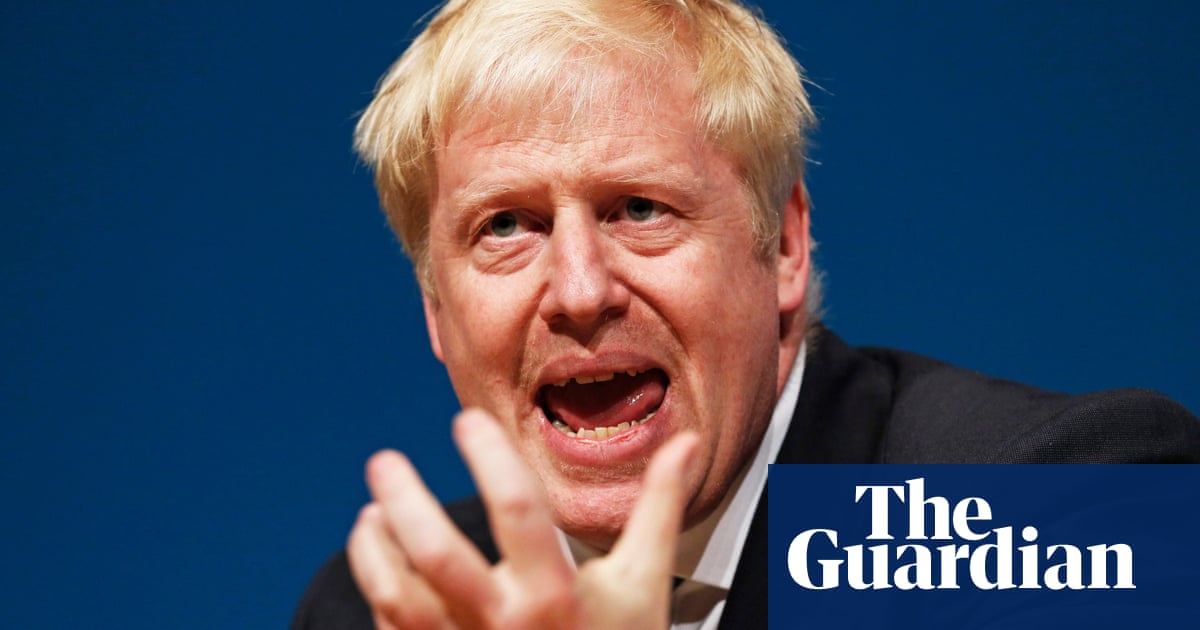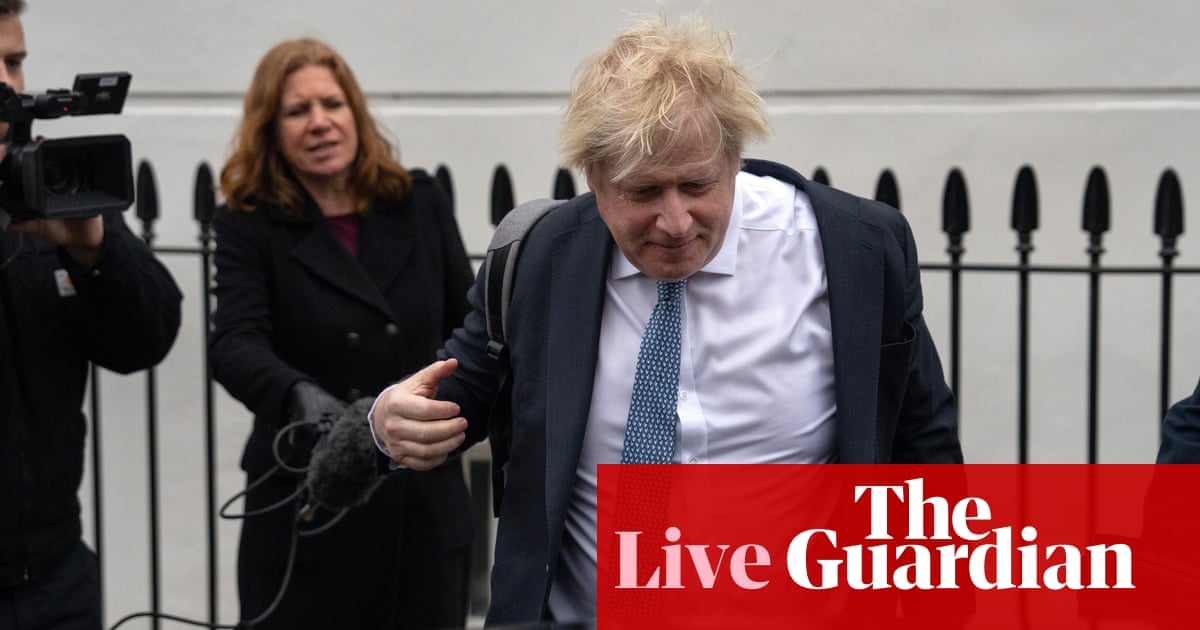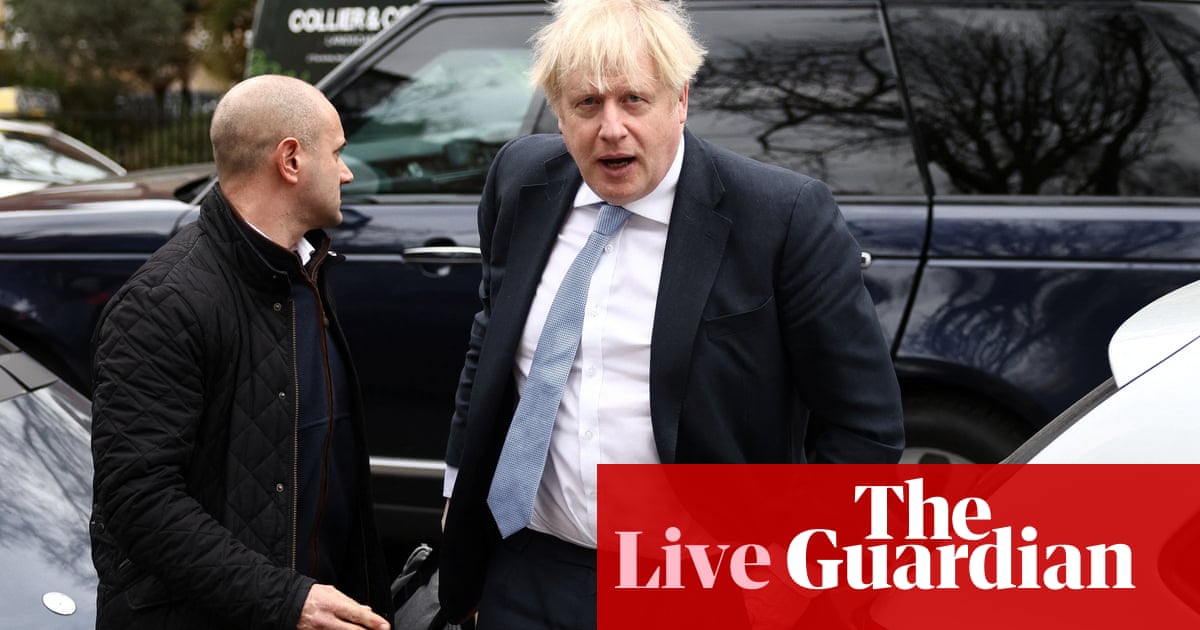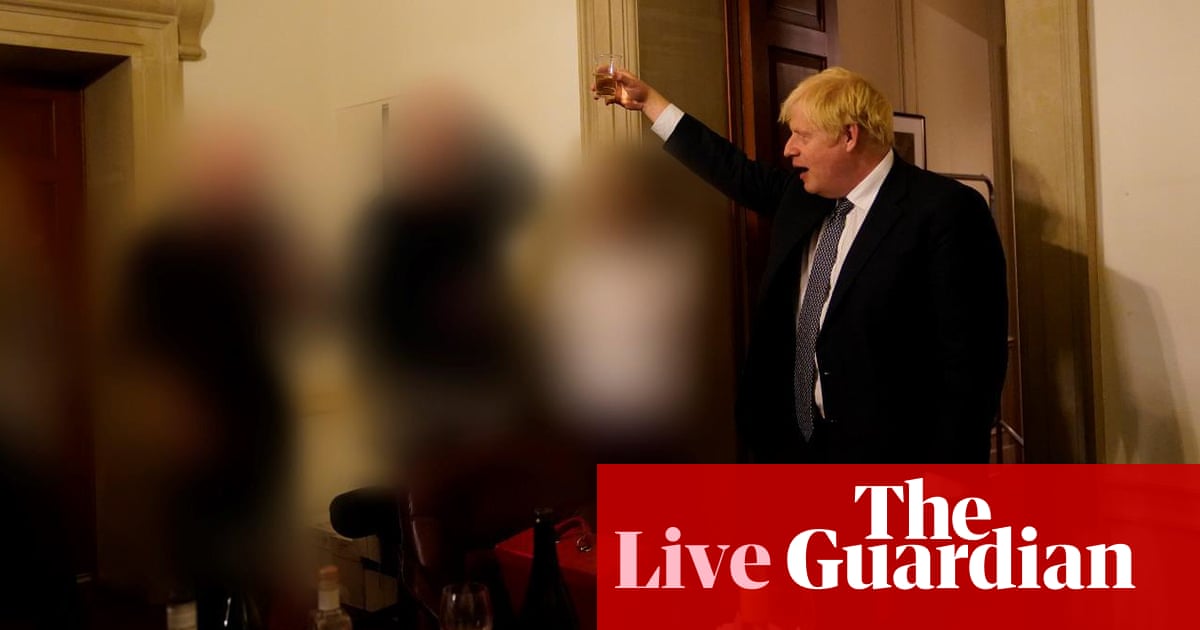
Johnson explains why he accepted claim No 10 press office Christmas drinks event, with food and presents, was not "party"
This is what Boris Johnson says about accepting the assurance that the Christmas drinks event organised by this press office on 18 December 2020, involving wine and presents, was not actually a party.
I asked Jack Doyle [his communications director] about the event, which he confirmed he had attended. He explained to me that the media team held a regular Friday evening team meeting, where they would discuss what had occurred during the week, and have a drink. As this was the last Friday of the year, there was also cheese and a Secret Santa. He reminded me that this had been a “nightmare” evening, as the country was about to go back into lockdown at a time when I was desperate to protect Christmas. He informed me that to call it a party was a great exaggeration. I asked him: “Was it within the rules?”. He told me: “It was within the rules.”
I had no basis to disbelieve Jack’s account of the event. The assurances provided by Jack Doyle must also be understood within the context within which we were working. The staff at No 10 regularly were working around the clock. On 18 December 2020 the media department were working late into the night on the difficult messages we would be giving to the public: in particular, that we were going to have to go back into lockdown and, in many cases, families would be unable to spend Christmas together. They were also preparing for both a deal and no deal Brexit. It is in this context that I understood that members of the press office, who were gathered for work purposes in No. 10 leading the government’s response to Covid-19, had wine and cheese and exchanged gifts at their desk. This did not sound to me like a breach of the rules or the guidance, let alone a party. Based on the information with which I was provided, this sounded like it was firmly within the work exception, and consistent with the guidance. Drinking wine or exchanging gifts at work and whilst working did not, in my view, turn an otherwise lawful workplace gathering into an unlawful one.
The privileges committee, in its report earlier this month, said it should have been “obvious” to Johnson that rules had been broken. This passage is useful because it contains plenty of detail to suggest that a PM other than Johnson might have come to a different conclusion, and perhaps interrogated his communications director more aggressively.
At the hearing tomorrow Johnson may be asked why he accepted Jack Doyle’s claim the event was within rules so readily.
Closing summary
Here is a round-up of the day’s news stories from Westminster:
Boris Johnson has said he would “never have dreamed” of intentionally misleading the House of Commons over Downing Street gatherings as he published a defence dossier he hopes will exonerate him from claims he lied to parliament. The former prime minister admitted he misled the Commons by telling MPs that strict Covid rules and guidance had been followed in No 10 at all times – but he said his comments were made “in good faith”.
In his submission to the privileges committee Johnson says it remains “a mystery” to him why he was fined by the Met police for attending the birthday party/gathering in the cabinet room on 19 June but other people who were there were not. He says: “Some attendees did not receive fixed-penalty notices, so the police must have decided that they nevertheless had reasonable excuses for being there. What those excuses were, and why the police decided that I did not have one remains a mystery to me.”
Johnson has said he is “very much” looking forward to his appearance before MPs investigating whether he knowingly misled parliament over partygate. In a statement ahead of Wednesday’s hearing of the Commons privileges committee, the former prime minister said: “I look forward very much to the committee session tomorrow. I believe that the evidence conclusively shows that I did not knowingly or recklessly mislead parliament. The committee has produced not a shred of evidence to show that I have.”
On the eve of Johnson’s appearance before the Commons privilege committee, Labour confirmed its candidate to contest his Uxbridge and South Ruislip seat at the next parliamentary election. The Uxbridge and South Ruislip Constituency Labour party selected Danny Beales to go up against the former prime minister, who was re-selected as the Tory candidate for the seat.
The UK home secretary has been accused of being “dangerously complacent” in tackling the major failings within the police service highlighted in the damning Casey review and urged to suspend immediately all officers being investigated for domestic violence and sexual assault claims. The shadow home secretary, Yvette Cooper, told the Commons that Suella Braverman’s response to the 300-page report into the culture within the Metropolitan police was a continuation of the “hands-off” approach at the Home Office that Louise Casey has criticised.
Keir Starmer has said that the Metropolitan police chief, Sir Mark Rowley, must act “further and faster” to deliver the change needed as a result of the Casey review While he had confidence in the head of Scotland Yard, the Labour leader criticised the government’s “hands off approach” to delivering police reform and committed a Labour government under his leadership to introducing mandatory national rules for police forces on vetting. It was “extraordinary” that this was not already in place, he added, especially after the examples of violence against women from police officers.
Rishi Sunak is set to push his revamped Northern Ireland protocol through the Commons despite hardline Conservative Brexiters rejecting the plan as an unacceptable failure that does not deliver any of its stated claims. The verdict of the European Research Group (ERG), which followed a similar rejection by the Democratic Unionist party on Monday, means Sunak is likely to face a Tory rebellion over the revised post-Brexit trade arrangements in Northern Ireland on Wednesday, although it appears unlikely to be significant.
The government will bring forward changes to its levelling up bill aimed at tackling problems with Airbnbs and other short-term lets, Michael Gove has said. Speaking in the budget debate, the levelling up secretary said ministers will make changes aimed at restricting “the way that homes can be turned into Airbnbs”, as he acknowledged a problem with holiday lets preventing younger workers from living and finding a job near to home.
The DUP will not resume power sharing at Stormont yet because it is not willing to “roll over” until its demands for changes to the Northern Ireland protocol are met, Sammy Wilson said this morning. The DUP MP was speaking on Good Morning Ulster in response to a question from Colum Eastwood, the SDLP leader, who asked Wilson when the DUP would lift its boycott of the power-sharing executive. Without the DUP it cannot function, and the DUP has been refusing to participate for more than a year because of its opposition to the protocol.
That’s it from me, Tom Ambrose, and indeed the UK politics live blog for today. Thanks for following along. Goodnight.
Keir Starmer has said that the Metropolitan police chief, Sir Mark Rowley, must act “further and faster” to deliver the change needed as a result of the Casey review
While he had confidence in the head of Scotland Yard, the Labour leader criticised the government’s “hands off approach” to delivering police reform and committed a Labour government under his leadership to introducing mandatory national rules for police forces on vetting.
It was “extraordinary” that this was not already in place, he added, especially after the examples of violence against women from police officers.
Starmer said the “biggest danger” after Louise Casey’s damning review, which found the force institutionally racist, misogynist and homophobic, is that it “becomes just another report rather than the beginning of real, lasting change”.
The review, commissioned following Sarah Everard’s murder, warned there may be more officers like killer Wayne Couzens and serial rapist David Carrick.
The 52 pages of Boris Johnson’s Partygate defence dossier drip with insights into the way he and senior No 10 figures tried to deal with and contain what became a spiralling scandal that engulfed his premiership.
Although the string of law-breaking parties during the pandemic first came to light 16 months ago, there are plenty of new revelations about the gatherings, conversations with key witnesses and briefings to both the press and parliament.
This is what we learned from what was hyped by Johnson’s team as a “bombshell” dossier.
On the eve of Boris Johnson’s appearance before the Commons privilege committee, Labour confirmed its candidate to contest his Uxbridge and South Ruislip seat at the next parliamentary election.
The Uxbridge and South Ruislip Constituency Labour party selected Danny Beales to go up against the former prime minister, who was re-selected as the Tory candidate for the seat.
David Williams, chair of Uxbridge and South Ruislip Constituency Labour party said in a statement:
Boris Johnson resigned as prime minister when dozens of his ministers and MPs refused to work with him. Our community deserves better.
Labour will offer Danny Beales, who can restore trust in political leadership and send a clear message that we do not want a Conservative MP.
He added:
Danny Beales has never been investigated for breach of the principles relating to public life established by Lord Nolan.
Lord Nolan was asked to report to the then Conservative prime minister, John Major, after multiple allegations of sleaze amongst Conservative MPs.
Johnson says he is "very much" looking forward to committee session tomorrow
Boris Johnson has said he is “very much” looking forward to his appearance before MPs investigating whether he knowingly misled parliament over partygate.
In a statement ahead of Wednesday’s hearing of the Commons privileges committee, the former prime minister said:
I look forward very much to the committee session tomorrow.
I believe that the evidence conclusively shows that I did not knowingly or recklessly mislead parliament.
The committee has produced not a shred of evidence to show that I have.
Suella Braverman and Yvette Cooper clash over the Home Office’s response to Louise Casey’s report revealing Met police failings.
Here are three articles on Boris Johnson that are well worth reading.
Marina Hyde in the Guardian says … well, it’s as damning as you would expect. Here’s an extract.
That hotly defensive defence dossier has now been published, and the overwhelming feeling is … stop whining and wanging on and weaselling out. You were the actual prime minister – man up. Johnson has lied so much and for so long and in such varied arenas that he presumably doesn’t even know he’s doing it any more. In many ways, the true disappointment is that his lawyer, David Pannick, has not advised him to go with a plea of diminished responsibility.
Paul Brand at ITV News, who broke some of the key Partygate stories, says Johnson has not said enough to counter claims he should have realised rules were being broken. He says:
So, if [Johnson] thinks it was necessary for staff to get together in No 10 - and he insists he was told all the way through that no rules were ever broken - why might MPs on the Committee still believe there is scope here for him to be deliberately misleading them?
Because ...
Mr Johnson has a pair of fully-functioning eyes.
What the Committee argues is that it is simply not credible for him to have attended events and not realised that they were contrary to the rules at the time, given what he saw before him.
Robert Peston at ITV News says what counts are not the facts, but the judgment the committee will make about how Johnson behaved. He says:
The tension between Boris Johnson and the privileges committee is not about the facts. Most of these are not contested. It is about something fundamental to the nature of government, namely leadership and responsibility.
Johnson did not challenge the lawfulness and propriety of the parties he attended, at the time he attended them. So much is clear, but is irrelevant to the committee’s investigation.
What is relevant is whether alarm bells should have rung for him as and when the Mirror and ITV started disclosing the scale of the partygoing culture in Downing Street, partygoing that shocked millions of British people because it was so different from how they felt compelled to behave during the pandemic by Mr Johnson himself.
Was Mr Johnson as head of the government right to accept the minimising statements of his colleagues and officials, who had their own reputations to protect and who were paid to put the best gloss on the activities of Mr Johnson and his ministers?
That is all from me for tonight. My colleague Tom Ambrose is taking over now.
Adam Wagner, the barrister and specialist in lockdown law, has got an excellent thread on Twitter on the potential problems facing Boris Johnson at the privileges committee tomorrow. It starts here.
Here is one of his points.
Wagner is referring to his passage in Johnson’s statement. Johnson said:
In his statement, [Martin Reynolds, Johnson’s principal private secretary] recalls a conversation with me prior to PMQs on 8 December 2021 when he “questioned whether it was realistic to argue that all guidance had been followed at all times, given the nature of the working environment in No 10” and that I “agreed to delete the reference to guidance”. I do not recall this conversation, but it is consistent with what I have said above.
And here is Wagner’s conclusion.
A small cohort of Boris Johnson super-loyalists has been tweeting in support of him following the publication of his evidence to the privileges committee today. Here are comments from five of of them, all Tory MPs.
From Nadine Dorries
From Andrea Jenkyns
From Sir James Duddridge
From Scott Benton
From Brendan Clarke-Smith
No 10 declines to call Met police institutionally racist, sexist and homophobic, saying action more important than terminology
In her review published today, Louise Casey says: “I make a finding of institutional racism, sexism and homophobia in the Met.”
But the government has declined to endorse the term “institutional racist”, a term first used in the Macpherson report 24 years ago, as a description of the force.
Sir Mark Rowley, the commissioner of the Met, said this morning that while he accepted that these problems in the Met were systemic, and not just the fault of bad individuals, he did not like using the term “institutionally racist” because it meant different things to different people.
In the Commons Suella Braverman, the home secretary, said she did not find the term helpful either. And this afternoon Downing Street declined to label the Met as institutionally racist, misogynistic and homophobic.
The PM’s spokesperson told journalists:
There’s clearly significant instances of racism, misogyny, and homophobia listed out in the report, which are shocking to the public.
We think the most important thing is action that is taken as a result of this important work, rather than focusing on terminology.





